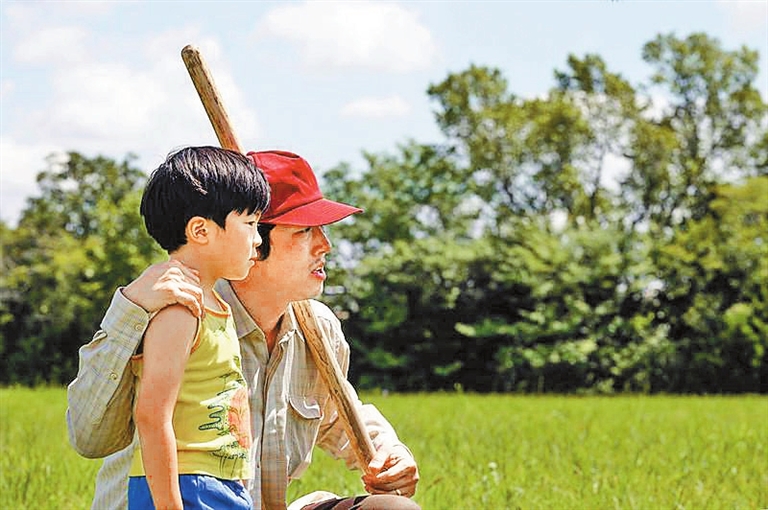
Most immigration stories are similar in a broad sense but distinctive in the details, which is certainly the case with “Minari.” A rare look at a Korean family trying to adapt and succeed in 1980s Arkansas, Lee Isaac Chung’s autobiographical feature is warmly observant, gently humorous, and straightforward about the awful strain the struggle places on the adults in the family. It’s mostly in English and universally relatable. After having left Korea and then failing to make it in California, the family of four with mostly Americanized names — father Jacob (Steven Yeun), mother Monica (Yeri Han), daughter Soonj (Noel Kate Cho) and little son David (Alan S. Kim) — finds itself in an oversized prefab home in an otherwise seemingly uninhabited rural area. Mom and Dad get the most meager jobs imaginable, separating male and female baby chicks in a factory barn, but they’ve come all this way because Jacob firmly believes he can grow lots of crops on his 50 acres and find success as a farmer. “Korean people use their heads,” Jacob insists, with as much optimism as he can muster. With no other options in view, Monica has little choice but to put up with it, but she’s nearly at the end of her rope. Despite minor discomforts, the kids are far more game, even with the lack of neighbors; kids can always find ways to amuse themselves. Changing the household dynamic in a helpful way is the arrival of Grandma (Yuh-Jung Youn), who provides excellent company for the kids and serves as a useful buffer between the parents, who aren’t seeing eye-to-eye on anything. Chung spends more time with the youngsters and the old-timer than seems necessary, but these are among the film’s best scenes, at once droll, impudent and true-to-life. Whenever Jacob and Monica are alone together, they occupy one of the less severe levels of hell. Knowing all too well how he’s thus far failed to properly provide for his family, Jacob can say very little until his current agricultural gamble pays off, if indeed it does. In a rather melodramatic development, young David has a potentially serious medical condition that may demand money they don’t have. Jacob has no reassuring words he can honestly or convincingly say to his wife to make her feel better; only time will tell.(SD-Agencies) | 
